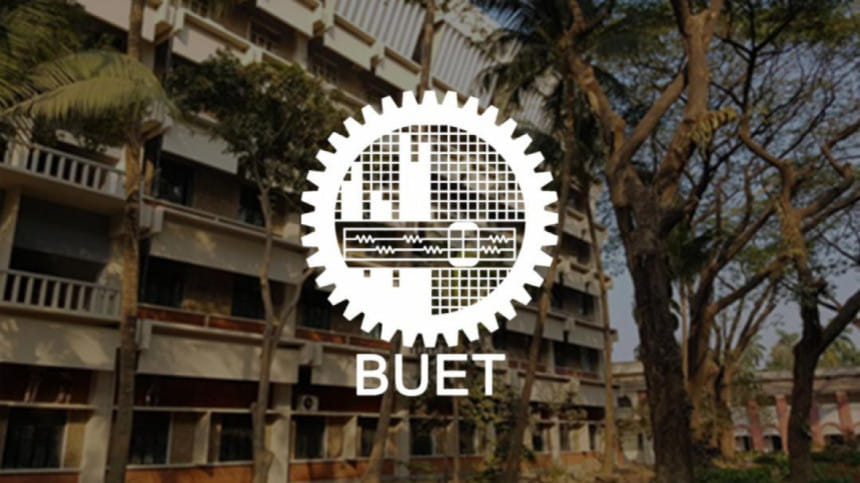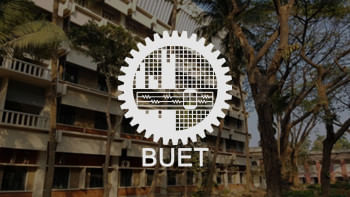How BUET’s position in QS world university ranking improved significantly

BUET has climbed up 162 notches in the engineering and technology category in the UK-based QS Ranking System in 2022, heading straight for the 185th position from the previous 347th.
Let us have a deeper look at the ranking indicators considered by the QS System and what initiatives BUET undertook to enhance its position.
Academic Reputation
This accounts for 40 percent of the score. Under this criterion, a pool of global academicians delivered their opinions on the academic proceedings of BUET. In the preliminary stage, the university can provide a maximum of 400 academicians to QS for creating this pool. BUET submitted a list of 320 so far. QS interviewed selected academicians from this list and from their own previous database, complying with the required confidentiality. Their evaluation earned BUET a score of 72 in Academic Reputation, seven points more than the previous year.
Employer Reputation This criterion contains a weightage of 30 percent. This criterion also involved interviewing 190 employers, based on whose opinions BUET scored 90, which is 27 points more than the previous year. Under this criterion, BUET had the scope to send the names of 400 employers. BUET has the scope of plugging in the gap by adding 210 more employers in the future.
Citations per Paper This segment accounts for 10 percent. From Scopus, the QS directly acquires the information about how many times the journal articles by BUET teachers were cited. This year BUET scored 70, which is four points higher than that in the previous year.
H-index
This holds a weightage of 10 percent. This index scrutinises how vital the published journals are in practical applications. The QS gave BUET a score of 61 in this segment, which is also five points higher than the previous year.
International Research Network (IRN)
The weightage of this part, which is a new addition in 2022, is also 10 percent. It examines if BUET is doing collaborative research with universities of different countries and industries. BUET scored 36 in this portion.
The overall score of BUET stands at 72.5, which is nine points higher than the last year, advancing BUET by 162 notches. The question which could be on everyone's mind is what catapulted BUET's position.
1) The recent initiatives gearing up Academic Reputation of BUET
– BUET continued its academic activities even during the coronavirus pandemic. To this goal, the BUET authority offered interest-free loans (around Tk three crore in total) from the university fund to students to use mobile data and devices such as laptops, desktops, and mobile phones. The registration fee was waivered on the students' demand.
These initiatives and their sound management helped BUET complete three terms in the pandemic-hit two years. The university usually cannot squeeze in more than three and a half terms in two years, owing to different circumstances.
– During this coronavirus pandemic, BUET academic council approved three new faculties namely the Faculty of Post Graduate Studies (FPGS), Faculty of Chemical and Materials Engineering (FCME), and Faculty of Science (FS). Recommended by the syndicate, the establishment of these three faculties awaits final approval from the authority.
– Another challenge during the coronavirus pandemic was freshers' intake. Upholding BUET's legacy and reputation, the admission test was organised in two phases. At first, 18,000 candidates took part in the MCQ exam. In the second phase, 6,000 students selected from the first phase participated. Due to the Covid-19 outbreak, it was not possible to examine and evaluate papers manually, and therefore, the job was delegated to a software innovated by BUET.
Even amid the challenge posed by the coronavirus spell, the admission test results were published with impressive haste. This fresher batch has already completed classes for the first term. Their first term exams will commence in person on May 16, 2022.
– The academic council and the syndicate forwarded a major decision about advancing the post-graduate academic programmes by involving foreign university teachers, which was later finalised by the finance committee.
– Research & Innovation Centre for Science & Engineering (RISE) has been set up to incubate innovations and enhance the scope for collaborative research with the overarching goal of catalysing research and innovation.
– The Centre for Energy Studies (CES) has been transformed into the Institute of Energy and Sustainable Development (IESD).
– Initiatives were undertaken to start new courses, aligned with the fourth industrial revolution, the SDGs, and the Vision 2041.
– A DPP of Tk 2,567 crore has been forwarded to the education ministry through the UGC for reshaping and modernising existing research projects. If approved, this plan, implementable in three years, will take BUET's research status to a new level.
– Digital takeover has eased all procedures regarding payment of students' dues, clearance, testimonial, transcript, and provisional certificate. The 2015 batch and their juniors are the beneficiaries of this digitisation.
– All the aforementioned information about BUET, sorted out in an organised manner, are at the fingertips of global educationists because BUET has made its website much more informative in the recent years. A comprehensive picture, including detailed figures on the number of teachers, the ratio of teachers to students, publications, and research scopes, is provided.
2) Employer Reputations climbed up primarily owing to the website visibility. The BUET alumni have an impressive track record in the global job market, which did not come to the limelight in the past. There was not a clear picture of how deeply BUET itself was involved in professional activities.
– There was not a big arrangement for publicity. Apart from the central website of BUET, multiple department websites display comprehensive information about UG and PG degrees, academic syllabus, extra-curricular events, industry-oriented programmes, research scopes, and highlights of different professional projects. The BUET authority has also geared up personal-level communications with employer organisations, paving the path for employers' solid impression of BUET graduates.
The improvement in 3) Citations per Paper and 4) H-index owes mainly to the following initiatives or steps:
– Both these indicators revolve around journal publications. Scopus data reveal that the number of publications from BUET stood at 519 in 2020 while it climbed to 698 in 2021.
– A careful analysis of past research budgets shows that the funding allocated for the research sector remained idle and therefore went back to the state treasury, which is frustrating. The initiatives by the current administration and its management plugged in that gap, virtually eradicating the possibility of leaving the research fund unused.
– Fellowship has been initiated to attract post-graduate MSc and PhD researchers. A PhD fellow is entitled to a scholarship of Tk 45,000 for 36 months each and a master's fellow to Tk 30,000 for 18 months each. Foreign students are also under the purview of the programme. A transparent policy, approved by the syndicate, decides who would be awarded the scholarship. Recently, 40 master's and 10 PhD students claimed this scholarship. Multiple alumni batches, especially Batch 85, donated a staggering amount of around half a crore BDT in this regard.
– Apart from fellowship, Teaching Assistantship (TA) has been introduced for other meritorious researchers. Combining all departments, a total of 132 TAs have been awarded so far. These TAs will receive around Tk 22,000, which is the same as the basic salary of Grade 9. Consequently, researchers can provide their undivided attention to their research in addition to enjoying an on-campus job. It may be appreciated that quality publications come from dedicated research.
– Financial Incentive for Journal Publication has been initiated by the BUET authority to inspire teachers in publishing journals. Each publication, meeting a set of approved criteria, will receive an incentive of Tk 1,50,000. This initiative created a pathway back to research for the teachers who had long been detached from such work.
– Basic Research Fund has been introduced for immediate expenditure required for research and attendance at local and foreign conferences by research students under the teachers. Under this initiative, a professor can receive a maximum of Tk 3,00,000, an associate professor Tk 2,00,000, and an assistant professor Tk 1,00,000; spendable in two years.
– Moreover, An Internal Research Grant worth Tk two crore has been channeled to RISE from BUET's fund, enabling the funding of the research proposal of a maximum of Tk 20 lakhs from BUET teachers, examined by RISE and approved by a higher committee.
5) The International Research Network (IRN) is a novel index featured by QS. The current score of BUET is 36 according to this index. With its limited resources, RISE has so far signed 10 international cooperative research contracts and memorandum of understanding. Moreover, research projects have also undertaken with multiple global organisations through some institutions of BUET. All these endeavors are reflected in the current score under this index, ushering in sustainable progress for BUET in global affiliation in research.
To sum it up, a university ranking is not for eternity. It is more challenging to uphold this legacy than merely achieving it. We must take this fact into account that the current score and position are relative. Other universities of the world will not sit idle. Therefore, it is not the time to bask in complacency. To accelerate this ongoing striving, we need the commitment and creativity of the administration, the earnestness of teachers, students, employees, and officials, immediate initiatives in creating skilled and sufficient manpower, generous budget allocation in the education and research sectors, and above all, the continuation of the ongoing cooperation from all ministries of the government.
The unstoppable journey of BUET symbolises the unstoppable journey of Bangladesh.
Prof Dr Abdul Jabbar Khan is the current pro-vice chancellor of Bangladesh University of Engineering and Technology. He is an eminent geotechnical engineering scholar and a public service recruitment expert.

 For all latest news, follow The Daily Star's Google News channel.
For all latest news, follow The Daily Star's Google News channel. 







Comments